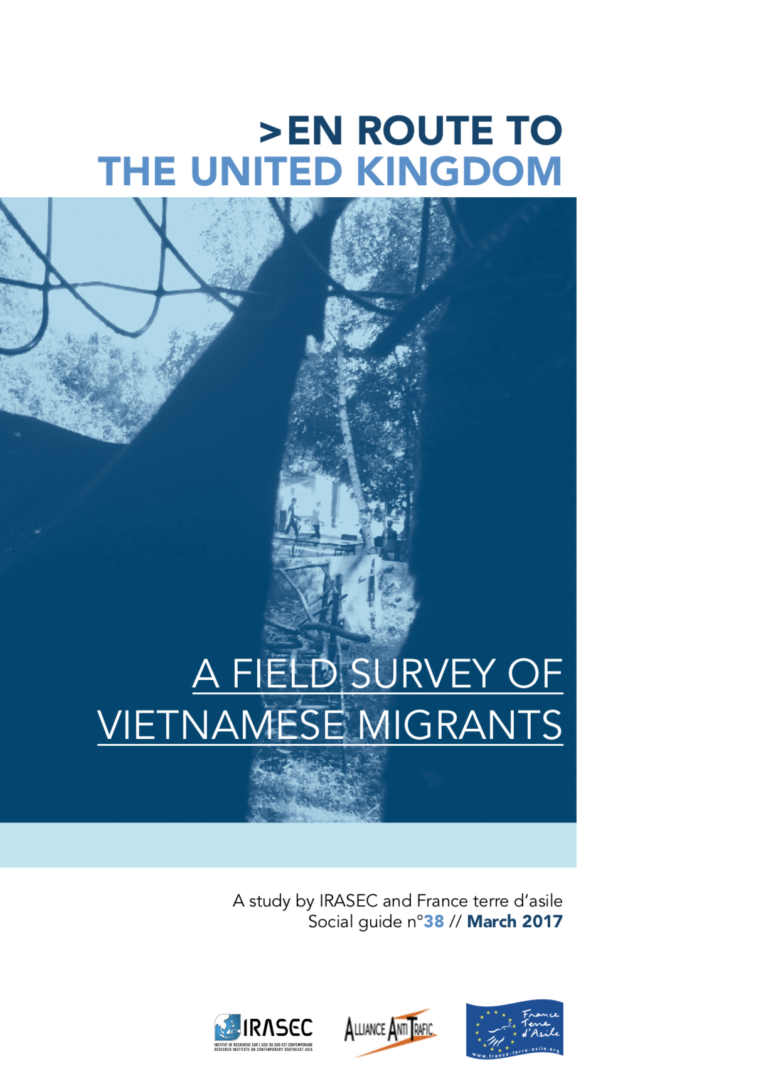Supplier Responsibility
Good PracticesPublicationsThis 2019 Annual Progress Report outlines Apple's efforts in 2018.
The objective of this study is to better understand the problems related to vietnamese migration to the united Kingdom. In September 2009, Vietnamese migrants received very low-key coverage on the French media scene when their camp in Angres, 100 km from the coast, was closed. It emerged that they wanted to get to the united Kingdom, considered to be an El Dorado. On the other side of the English Channel, the British authorities were concerned at the increasing number of these illegal migrants, in particular minors, being exploited in cannabis factories. In recent years, the Vietnamese were one of the top three nationalities referred to the NRM (National Referral Mechanism), a system put in place by the British government to identify victims of human trafficking and modern slavery. Their numbers tripled between 2012 and 2015 (135 to 478). In 2015, the Vietnamese were in second position after the Albanians. When France terre d’asile became aware of this problem, it decided to commission a sociological survey of this group of Vietnamese migrants in transit on the French coastline of the Channel in order to improve the support offered to them.
A multi-site field survey was conducted between July and November 2016. The research team met some of the migrants and talked with the organisations that are in contact with them. The survey started in Paris, which is a temporary destination for migrants before moving on to the United Kingdom. It was continued in London and Birmingham, where the majority of the Vietnamese community in the united Kingdom is concentrated; in Calais, which is the central hub of the migrants’ passage, and where most of the Vietnamese migrants arrested by the police are placed in the immigrant detention centre (CRA) of Coquelles; in Grande-Synthe, near Dunkirk, where the new camp of La Linière, opened in March 2016, houses a small group of Vietnamese migrants; and finally in “Vietnam City”, a camp in a wood in Angres, close to a rest area of the A26 motorway, which the majority of the Vietnamese migrants pass through, hiding in lorries, to get to the United Kingdom.

This 2019 Annual Progress Report outlines Apple's efforts in 2018.
This year’s World Employment and Social Outlook: Trends provides a comprehensive assessment of current decent work deficits and how these have been exacerbated by multiple, overlapping crises in recent years. It analyses global patterns, regional ...Read More
This review has drawn upon findings from evaluations and research that has been carried out by academics and by government departments. It has identified that in some cases, there is an absence of an independent, published evaluation. To understand ...Read More
This study was carried out to identify and sequence the determinants impacting the Algerian government’s anti-trafficking efforts. As the only study so far to explore the issue of determinants in Algeria, the authors anticipate this report will im...Read More